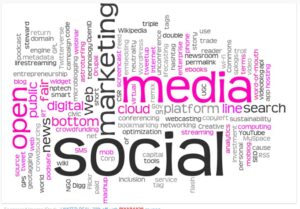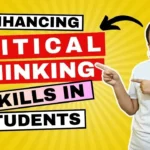Communication skills are essential in all walks of life. They are particularly important for general communication and basic communication. This is true in business, education, and all manner of personal relationships.
The ability to relay information accurately, concisely, clearly, and as intended, is a dynamic and necessary life skill. It is something that should not be disregarded. Without interpersonal skills and basic communication skills we will have difficulty succeeding in life. But what are the basic communication skills? This article will discuss the basics of excellent communication and then have a brief look at interpersonal communication skills using email and on the phone. The two main avenues of communication in today´s digital age.
What are the basics of effective communication?
“When people talk, listen completely. Most people never listen.” – Ernest Hemingway
Active Listening skills.
Active listening is an effective communication skill that is a crucial skill for success. Anyone can develop it with practice. A key idea is to respond to the speaker by repeating their question, showing empathy, and addressing their concerns.
An example of this in general communication might be:
Speaker A: “I am worried about the future of the business, and I can´t think of anything to improve the performance of the staff.”
Speaker B: “I understand that you are worried about the future, and I think if we all get together, we can brainstorm some ideas to improve performance.”
People need to listen intently, acknowledge it, and show understanding. Miscommunications often occur because people do not listen properly, and this can lead to a wide array of problems in diverse situations.
“The most important thing in communication is to hear what isn’t being said.” – Peter Drucker
Open-mindedness and Honesty.

“The single biggest problem in communication is the illusion that it has taken place.” – George Bernard Shaw
Trust and transparency are vitally important in many situations. Basic communication is based on trust. If stakeholders lack trust in each other and do not share information transparently, their relationships will be strained. A lack of basic communications skill will reduce the chances of success and ongoing relationship development can be reduced. Excellent interpersonal communication skills are paramount to work in collaboration with others.
“If you have nothing to say, say nothing.” – Mark Twain
Positivity.
“Effective communication is 20% what you know and 80% how you feel about what you know.” – Jim Rohn
Having a positive approach makes general communication and interpersonal skills a lot easier and more pleasurable for all stakeholders. People always admire those who see the proverbial “glass half full” instead of those who dismay and see the glass “half empty.” Positivity helps with resolving problems and problems solving is an enormous part of effective communication skills.
The adage commonly known as Murphy`s law states that “what can go wrong will go wrong” and having a positive attitude is the best way to deal with problems.
Body language.

“If someone does not smile at you, be generous and offer your own smile. Nobody needs a smile more than the one that cannot smile to others.” -Dalai Lama
Body language says a lot about your true feelings and people communicating are aware of what your body says. Leaning forward in a relaxed open posture shows you are attentive and engaged and open to suggestions. Leaning back with folded arms makes you seem distant, disengaged, uninvolved, and unreceptive to new ideas and suggestions. Body language is an important part of interpersonal skill development. Different cultures have different mannerisms, so it is important to familiarize yourself with cultural sensitivities e.g., in Malaysia people point with their thumbs and it is considered rude to point with your finger.
Learning to empathize.
“Communicate unto the other person that which you would want him to communicate unto you if your positions were reversed.” – Aaron Goldman
Imagining what it´s like to be in someone else´s shoes is an effective communication skill which improves general communication. This is the true essence of empathy. When you understand what something is like from someone else´s perspective you are better able to assist them and understand their needs and this leads to better rapport and better relationships.
Clarity, Conciseness and Correctness.

“Wise men speak because they have something to say; Fools because they have to say something.” – Plato
Time is money as the old saying goes and no one likes to waste either. There is a time and place for long rambling conversations but communication like emails and electronic chats and purposeful phone calls should be clear, concise, and correct. Don´t beat around the bush. Follow up punctually, confirm and give people gentle reminders. Take care how you type, DON`T type in capitals and pay attention to being always courteous and polite. People will appreciate this. Sincerity and accuracy are paramount in communication. A simple “thanks” can go a long way to develop effective communication skills and build trust and appreciation.
Be Patient and Polite
“There is only one rule for being a good talker – learn to listen.” – Christopher Morley
Patience is a virtue everyone appreciates, and it goes a long, long way in interpersonal skills. Being calm and collected is a much easier and nicer way to communicate than having an unnecessarily heated debate where tempers flare.
Giving and Receiving Feedback

“It’s important to make sure that we’re talking with each other in a way that heals, not in a way that wounds.” – Barack Obama
The ability to be able to accept constructive criticism and positive and negative feedback graciously is crucial to solving problems. Giving both positive and negative feedback is a skill that is essential for effective communication. One tried and tested technique is to always give positive feedback first and use very polite and diplomatic language when giving negative feedback. This is an excellent interpersonal skill that one can master with practice. Communicate your ideas quickly and get to the point. People are busy and appreciate efficiency.
Digital Communication
These days a lot of communication is done by email and text message. These popular formats have conventions and adhering to these conventions helps basic communication.
Twelve tips for effective Emails

- Ensure you have the recipients` names correctly spelt.
- State the reason for your email at the beginning of the text.
- Be culturally sensitive and consider who you are writing to and what is appropriate.
- Be precise with dates and deadlines.
- Use bullet points for clarity
- Be clear, correct and concise.
- Be polite, punctual, and upbeat
- Write a clear subject line letting the recipient know the reason for the email.
- Always do a spelling and grammar check. People appreciate well-written emails.
- Remember email is never private. Never disclose sensitive information.
- Use an appropriate style. Whether this is formal or informal depends on your relationship with the recipient.
- Be careful using emoticons. There is a time and place for their use.
Talking on the phone

1. Prepare for the call
It may sound obvious but find a quiet place to make the call to minimize disturbances. Get a headset and ensure your connection is good. Consider what you want to say to the receiver before the call. Have all the necessary information at hand and know exactly to whom you need to speak. Make a note of who you spoke to and make a record of the call if you need a follow-up. Consider if there is any specific vocabulary that you do not usually use and research it before you make the phone call. If you are conversing with people in other countries, consider the time difference and the best time to make the call. These tips enhance basic communication.
2. Think about your tone of voice
If you sound disinterested, the receiver may well notice it. Try to sound enthusiastic and stay attentive to the words of your conversant.
3. Speak clearly and concisely
Speaking too quickly can cause miscommunication.
4. Stay focused and do not try to do other things while on the phone.
These days there are many distractions on devices, social media messages and notifications are disturbing. Stay focused on the call and don´t read other communications.
5. Summarize the conversation so that participants know what is expected of them
Follow up with an email if necessary.
5. Listen carefully
Have a pen at hand, make notes, and write a date on your notes and to whom you spoke. If you are unclear about anything, ask for clarification.
6. Remember the recipient has no non-verbal cues
Communicate everything verbally. Unless you are on a video call the person you are speaking to you cannot see you nodding your head or smiling so that`s worth keeping in mind.
7.Be clear about the purpose of the call.
Understand what the purpose of the call is. Write a checklist and tick off the topics one by one. This ensures you achieve your aims.
8. Keep voicemails short and sweet.
Think about what you want to say in advance should you need to leave a voicemail. Be concise and clear.
“Although we live in an information technology age, we often find ourselves in failure to communicate situations. “ – Johnny Tan
Conclusion
Try out these tips and remember to maintain being mindful and attentive in your daily communication with the world. Remember basic communication skills can be learned and practiced. Never give up. Stay positive, polite, and upbeat. Good luck!
Patrick is from Ireland and has been teaching for the last twenty years. He has worked in Malaysia, Myanmar, India, Spain, Japan, Taiwan, Oman, and Saudi Arabia. He has a degree in English Literature and Applied Psychology. Patrick loves travelling and learning about new cultures. He is enthusiastic about motivating students to maximize their creative potential.




































